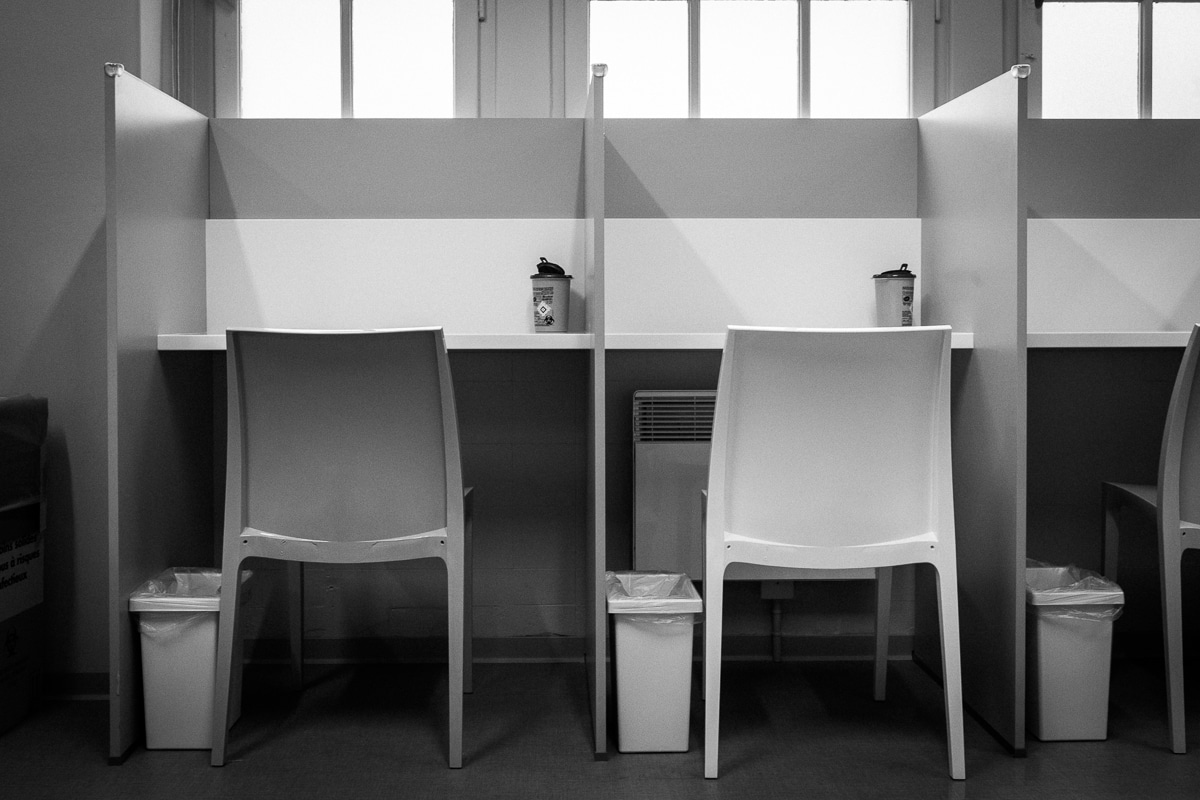The governor of Rhode Island on Wednesday signed a bill to establish a safe consumption site (SCS) pilot program where people could test and use currently illicit drugs in a medically supervised environment. It’s the first state in the country to legalize the harm reduction centers.
The legislation was approved by the House of Representatives last month, when lawmakers also accepted a Senate companion version. Last week, the Senate, which had passed an earlier version of the bill in February, approved changes and gave final approval, sending the proposal to Gov. Dan McKee (D).
The governor didn’t issue a statement on the legislation, but his office noted in a press release that he signed it along with more than 20 other bills.
Under the new law, individual municipalities will still need to authorize the facilities to operate in their jurisdictions during the two-year pilot program.
The bill was partly informed by recommendations from an overdose task force convened under former Gov. Gina Raimondo (D), and it also calls for the creation an advisory committee. That panel will be required to advise the state Department of Health on how to “maximize” the benefits of the centers.
“The opioid epidemic has become a tremendous public health crisis, with overdoses of prescription and non-prescription opioids claiming a record number of lives,” Rep. John Edwards (D), sponsor of the House bill, said in a press release when lawmakers sent it to the governor last week. “Not only do harm reduction centers severely mitigate the chance of overdose, they are a gateway to treatment and rehabilitation of people with substance abuse disorder.”
“These locations will be under the supervision of trained medical staff who can direct addicts toward substance use disorder treatment,” he said. “It’s a way to tackle this epidemic while saving lives in the process.”
Senate Health and Human Services Chairman Joshua Miller (D), who sponsored his chamber’s version of the bill, said that “if we are truly going to rein in the drug overdose epidemic, we must recognize drug addiction as the health problem it is, rather than as merely a crime.”
“People who are addicted need help and protection from the most dangerous possibilities of addiction,” he said.
Advocates cheered the historic achievement.
“Today’s victory in Rhode Island gives us hope that there are policymakers that are willing to actually lead and do what needs to be done to save lives in the face of one of the worst public health crises of our time,” Lindsay LaSalle, managing director of policy for the Drug Policy Alliance, said in a press release.
“With at least 92,000 of our friends and family members lost to overdose in 2020 alone, we simply cannot wait any longer,” she continued. “There are mountains of evidence, from years and years of experience in other countries, to show that these centers save lives, increase the likelihood of a person entering treatment and provide people access to other vitally important health resources.”
Haley McKee, co-chair of the Substance Use Policy Education & Recovery PAC, said she hopes the move will “set a precedent for other states to follow suit, with Rhode Island being the leader.”
The Rhode Island Senate in 2019 passed a similar bill to create a harm reduction center pilot program, but it did not advance through the House. And last year, a Massachusetts legislative committee approved a bill that would legalize safe injection sites, but it did not become enacted.
A similar harm reduction bill in California, sponsored by Sen. Scott Wiener (D), was approved in the state Senate in April, but further action has been delayed until the beginning of 2022.
The senator said in a press release that he’s “extremely disappointed” about the delay. However, it’s a two-year legislative session in California and so the current bill is still alive.
“I do believe we will pass SB 57 next year,” Wiener said. “It passed the Senate this year, and the Assembly Health Committee has repeatedly passed the bill over the past five years. I’m optimistic that the Committee will, indeed, pass the bill in January.”
Former Gov. Jerry Brown (D) vetoed legislation in 2018 that would’ve established a safe injection site pilot program.
This year, a federal court blocked a Philadelphia nonprofit from opening a harm reduction center but its backers are pursuing an appeal—and it’s not clear if the Justice Department under President Joe Biden will take a different stance on the issue than the Trump administration did.
In 2018, a congressional subcommittee approved legislation to specifically prohibit Washington DC from using local tax dollars to help open SCS. But that provision was not enacted and has not been reintroduced since.
A 2020 study found that people “who reported using supervised injection facilities on an at least weekly basis had a reduced risk of dying compared to those who reported less than weekly or no use of this health service.”
Meanwhile in Rhode Island, the House Finance Committee last week heard testimony on one of three proposals introduced this session to legalize marijuana for adult use. Legislative leaders and the governor’s office have indicated they’d like to reconcile the differences between those measures and potentially return to vote on a compromise bill later this year.
The Senate already passed a separate cannabis legalization measure last month.
* DPA previously provided a restricted grant to The Influence Foundation, which operates Filter, to support a Drug War Journalism Diversity Fellowship.
Photograph via Wikimedia Commons/Creative Commons 3.0
This story was originally published by Marijuana Moment, which tracks the politics and policy of cannabis and drugs. Follow Marijuana Moment on Twitter and Facebook, and sign up for its newsletter.





Show Comments